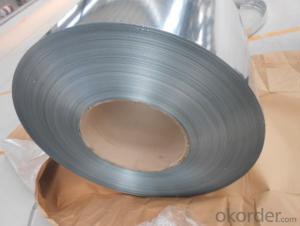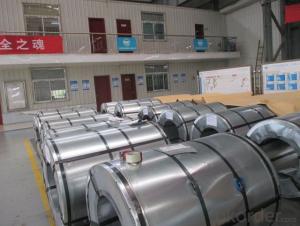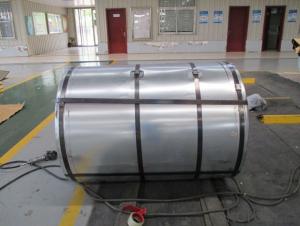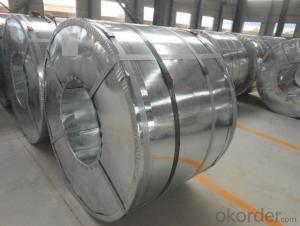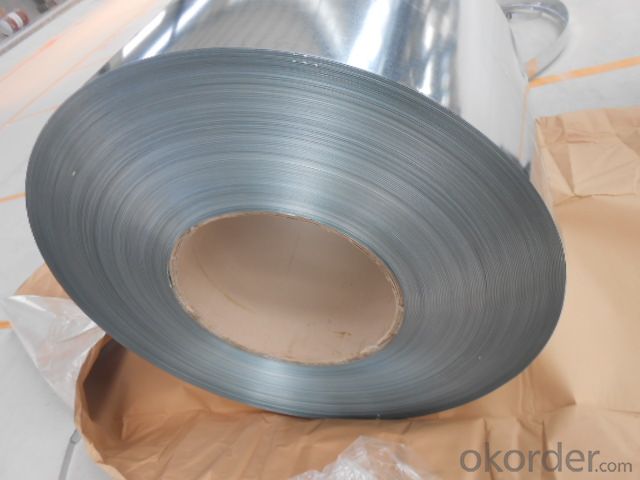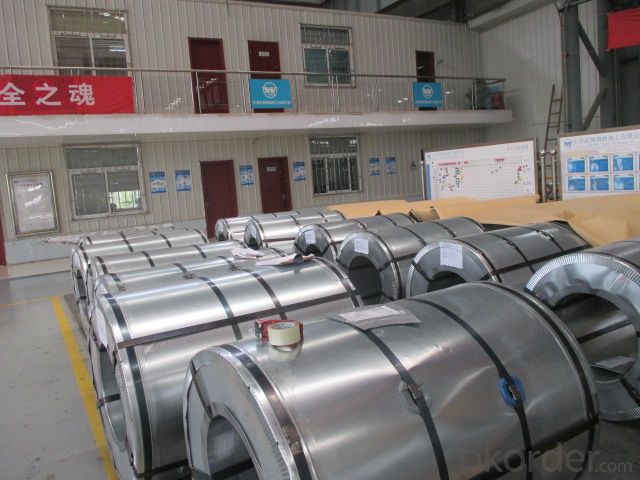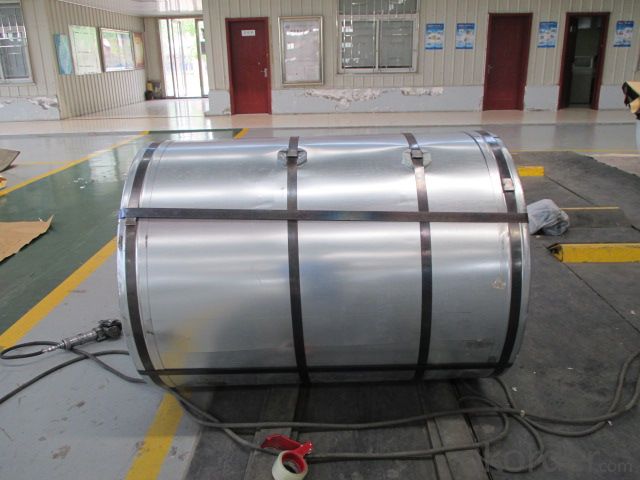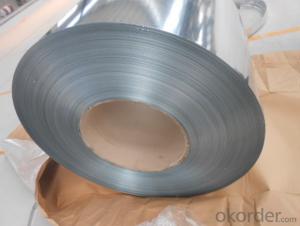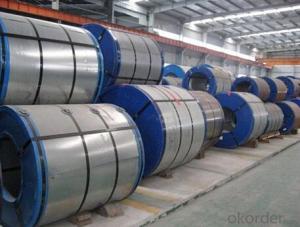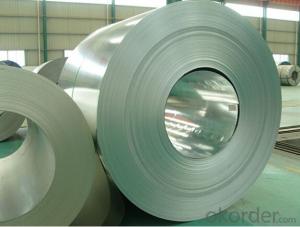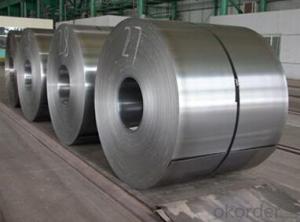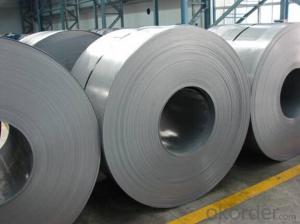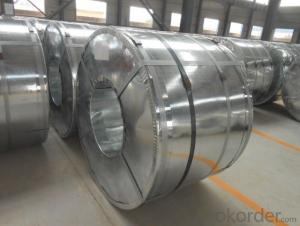STAINLESS STEEL COILS JIS G 4305
- Loading Port:
- China Main Port
- Payment Terms:
- TT OR LC
- Min Order Qty:
- -
- Supply Capability:
- -
OKorder Service Pledge
OKorder Financial Service
You Might Also Like
STAINLESS STEEL COILS
Packaging & Delivery
Packaging Detail: seaworthy export package
Delivery Detail: on request
Specifications
1. more than 10 years’ experience on this field
2. advanced equipments
3. competitive price
4. soonest delivery
Product Description :
Commodity
STAINLESS STEEL COILS
Technical Standard: Steel Grade &Standard:J1
Surface Treatment:NO.1
Hot rolled Annealed and Pickled(HRAP)
Grade: J1 , Prime quality
Mill Edge. No connection point in each coil.Component: Ni:1% , Cu: 0.65-0.9%, Cr: 13%, Mn: 10–12%, C: 0.09-0.12%
Package:Properly packed for ocean freight exportation in 20''container
Application::home appliances, constructions, building, machineries
Our Advantages :
1. Expertise:
More than 10 years of manufacture: we know how to properly handle every step of production.
2. Competitive price:
We can offer competitive prices to our customers.
3. Accuracy:
We have excellent technicians and leaders, which can ensure our products are exactly what you want.
4. Materials:
All steel coils are made of high-quality raw materials.
5. Certificate:
Our products are certified by ISO9001.
6. Productivity:
We have large-scales of production lines,, which can guarantee all your orders will be finished in earliest time.
The furnace heating style: improved Sendzimir heating technology
Hourly output: max.76.3t/h
Process after coating: tension leveling, Passivation or oiling
Our Service
Our quality
Test Equipments of Prepainted Galvanized Steel Coil : Salt-spray tester; Atomic absorption spectrophotometer; Rockwell typer hardness tester; Tensile test machine; Metrohm titration; Laboratory Bend test machine.
Our packing
Properly packed for ocean freight exportation in 20''container, galvanized metal fluted rings on inner and outer edges, galvanized metal & waterproof paper wall protection disk, galvanized metal & waterproof paper around circumference.
R&D department
R&D department concentrates on researching and developing reliable products with best quality. The quality department test and control every process of production to guarantee the best quality of product
- Q: How do steel coils contribute to seismic resistance in structures?
- Steel coils contribute to seismic resistance in structures by providing strength, flexibility, and energy dissipation. When steel coils are incorporated into the structure's design, they act as seismic dampers, absorbing and dissipating the energy generated during an earthquake. The coils help to distribute and reduce the seismic forces, minimizing structural damage and enhancing the overall stability and resilience of the building. Additionally, the flexibility of steel coils allows them to withstand forces without breaking, ensuring the structure's integrity and safety during seismic events.
- Q: How are steel coils used in the manufacturing of hydraulic cylinders?
- Steel coils are used in the manufacturing of hydraulic cylinders as the raw material for constructing the cylinder's body. The coils are cut and shaped into the desired size and shape, and then welded or formed into the cylinder's outer shell. This steel construction provides strength and durability to the hydraulic cylinder, allowing it to withstand high pressure and heavy loads.
- Q: The hard industrial steels. If there's a bunch, what's a rough average? Also, what is is measured in?
- Hrc Steel
- Q: I bought a damascus steel knife. It will be used for display. Nothing like hunting/skinning. If It is just sitting around, will it rust? (assuming that it isn't getting wet) Thanks for the help.
- Modern okorder /... Whether it will rust or not depends on humidity in your area and steel's own stainlessness. Although, if it's just for the display chances are very little, unless humidity in your area is close to tropical rain-forest. Natural oils do prevent rust, but they degrade with time. You'll be much better off using tuf-cloth or something similar. I've had plain carbon steel knives protected with Tuf-cloth for years, no sign of rust.
- Q: What is the typical size and weight of a steel coil?
- The specific application and industry play a role in determining the varying size and weight of a steel coil. Generally, steel coils are manufactured with widths that range from 0.5 to 2 meters (1.6 to 6.6 feet) and can weigh anywhere between 1 to 25 metric tons (2,205 to 55,116 pounds). The size and weight of a steel coil are influenced by factors such as the type of steel utilized, the intended purpose of the coil, and the manufacturing method employed.
- Q: I need to know how you rate the hardness of steel any ideas?
- Find your portable hardness testers from our latest collections thats for sure having the ability to test hardness of metal alloys and plastic by applying some amount of pressure on it. All our evaluators can evaluate in Brinell, Rockwell and Vickers machines.
- Q: How are steel coils inspected for weldability using welding tests?
- Steel coils can be inspected for weldability using various welding tests. One common method is the bend test, where a sample of the coil is bent to evaluate the ductility and resistance to cracking. Another test is the tensile test, which measures the strength and elongation of the steel under tension. Additionally, the charpy impact test assesses the steel's toughness by measuring its ability to absorb energy during impact. These tests help determine the suitability of the steel coils for welding applications and ensure the quality of the welds.
- Q: Can steel coils be coated with chemical-resistant materials?
- Yes, steel coils can be coated with chemical-resistant materials. The use of chemical-resistant coatings helps protect the steel coils from corrosion and damage caused by exposure to various chemicals, acids, or solvents. These coatings create a barrier that prevents the chemicals from reaching the steel surface and ensure the durability and longevity of the coils in harsh chemical environments.
- Q: What are the different coil cutting machine options available for steel coils?
- There are several coil cutting machine options available for steel coils, each catering to different requirements and specifications. Some of the common options include: 1. Slitting Machine: This machine is used to slit the large steel coils into narrower strips or slits. It typically consists of a circular blade that moves across the width of the coil, cutting it into the desired widths. Slitting machines can handle a wide range of steel coil thicknesses and are commonly used in industries such as automotive, construction, and manufacturing. 2. Cut-to-Length Machine: This type of machine is used to cut steel coils into specific lengths. It is equipped with a shearing mechanism that cuts the coil based on the programmed length. Cut-to-length machines are particularly useful for applications where precise and consistent lengths are required, such as in the production of steel sheets or plates. 3. Rotary Shear Machine: A rotary shear machine is designed to cut steel coils into smaller pieces or squares. It utilizes a rotating drum with multiple cutting blades that shear the coil in a continuous process. This type of machine is often used in industries that require smaller steel pieces for further processing or assembly. 4. Guillotine Shear Machine: This machine is equipped with a large blade that moves vertically to cut steel coils. It is commonly used in applications where high precision and high-speed cutting are required. Guillotine shear machines can handle thicker steel coils and are often employed in heavy-duty industries such as shipbuilding and metal fabrication. 5. Laser Cutting Machine: Laser cutting machines offer a highly precise and versatile method for cutting steel coils. They use a focused laser beam to melt or vaporize the material, resulting in a clean and accurate cut. Laser cutting machines are suitable for a wide range of steel coil thicknesses and can handle complex shapes and patterns. These are just a few examples of the coil cutting machine options available for steel coils. The choice of machine depends on factors such as coil thickness, desired cutting precision, required output volume, and specific application requirements.
- Q: My teacher says if they were that they would still be standing today. I'm not sure if he means the reinforced steel in the concrete beams, columns etc or if the whole beams and columns floor etc were were made of reinforced steel.
- Reinforced Steel is found in concrete, and if the towers were built with reinforced concrete (concrete beams with rebar) then they would likely still be standing. The twin towers were made of steel. When steel is heated up, it deforms and collapses, which is why it didnt stand up. One of the top 2 things against steel is that it is not fire resistant.
Send your message to us
STAINLESS STEEL COILS JIS G 4305
- Loading Port:
- China Main Port
- Payment Terms:
- TT OR LC
- Min Order Qty:
- -
- Supply Capability:
- -
OKorder Service Pledge
OKorder Financial Service
Similar products
Hot products
Hot Searches
Related keywords
